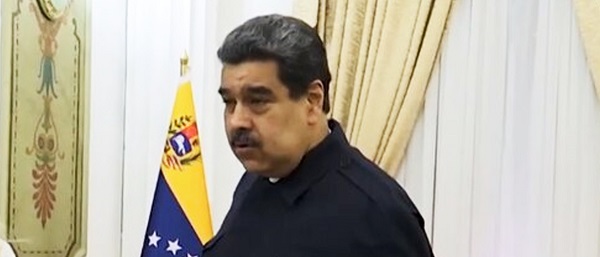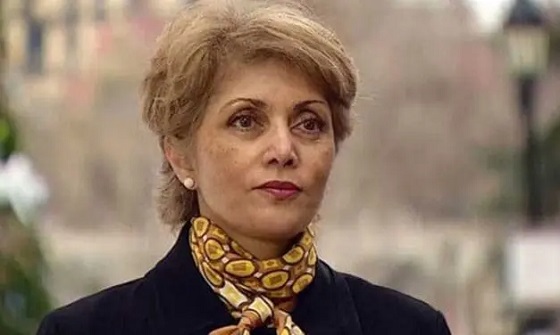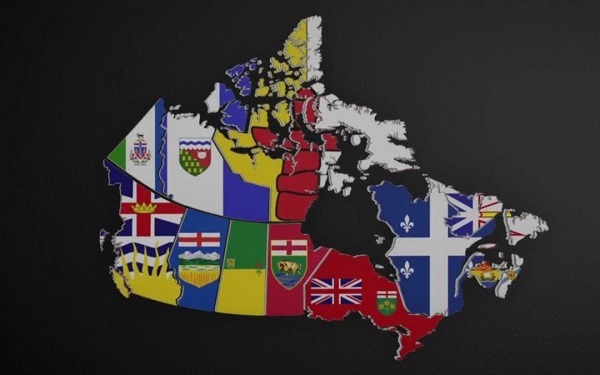Business
Trudeau gov’t threatens to punish tech companies that fail to censor ‘disinformation’

From LifeSiteNews
A report from the House of Commons Heritage Committee claimed that ‘some individuals and groups create disinformation to promote political ideologies including extremist views and conspiracy theories or simply to make money.’
A report from a Canadian federal committee said MPs should enact laws to penalize social media and tech companies that don’t take action to quell so-called “undesirable or questionable” content on the internet.
MPs from the ruling Liberal, New Democratic Party (NDP), and separatists Bloc Québécois party on the House of Commons Heritage Committee summarized their opinions in a report.
“The Government of Canada notes some individuals and groups create disinformation to promote political ideologies including extremist views and conspiracy theories or simply to make money,” reads the report titled Tech Giants’ Intimidation and Subversion Tactics to Evade Regulation in Canada and Globally.
“Disinformation creates ‘doubt and confusion’ and can be particularly harmful when it involves health information,” it continues.
The report notes how such “disinformation” can cause “financial harms as well as political polarization and distrust in key institutions,” adding, “The prevalence of disinformation can be difficult to determine.”
As noted in Blacklock’s Reporter, the report claims that many of Canada’s “major societal harms” have come from “unregulated social media platforms relying on algorithms to amplify content, among them disinformation and conspiracy theories.”
Of note is the committee failed to define what “disinformation” or “conspiracy theories” meant.
Most of the MPs on the committee made the recommendation that Google, Facebook, and other social media platforms, which ironically have at one point or another clamped down on free speech themselves, “put mechanisms in place to detect undesirable or questionable content that may be the product of disinformation or foreign interference and that these platforms be required to promptly identify such content and report it to users.”
“Failure to do so should result in penalties,” the report stated.
As it stands, the federal government under Prime Minister Justin Trudeau has plowed ahead to push laws impacting free speech online.
As reported by LifeSiteNews, Canadian legal group The Democracy Fund (TDF) warned that the Liberal government’s Bill C-63 seeks to further clamp down on online speech and will “weaponize” the nation’s courts to favor the ruling federal party and do nothing but create an atmosphere of “fear.”
Bill C-63 was introduced by Liberal Justice Minister Arif Virani in the House of Commons in February and was immediately blasted by constitutional experts as troublesome.
Jordan Peterson, one of Canada’s most prominent psychologists, recently accused the bill of attempting to create a pathway to allow for “Orwellian Thought Crime” to become the norm in the nation.
Conservative MPs fight back: ‘A government bureaucracy should not regulate content’
Conservative MPs fought back the Heritage Committee’s majority findings and in a Dissenting Report said the committee did not understand what the role of the internet is in society, which is that it should be free from regulation.
“The main report failed to adequately explore the state of censorship in Canada and the role played by tech giants and the current federal government,” the Conservatives wrote in their dissenting report, adding, “Canadians are increasingly being censored by the government and tech giants as to what they can see, hear and say online.”
The Conservative MPs noted that when it comes to the internet, it is “boundless,” and that “Anyone who wants to have a presence on the internet can have one.”
“A government bureaucracy should not regulate which content should be prioritized and which should be demoted,” it noted, adding, “There is space for all.”
LifeSiteNews reported how the Conservative Party has warned that Trudeau’s Bill C-63 is so flawed that it will never be able to be enforced or become known before the next election.
The law calls for the creation of a Digital Safety Commission, a digital safety ombudsperson, and the Digital Safety Office, all tasked with policing internet content.
The bill’s “hate speech” section is accompanied by broad definitions, severe penalties, and dubious tactics, including levying pre-emptive judgments against people if they are feared to be likely to commit an act of “hate” in the future.
Details of the new legislation also show the bill could lead to more people jailed for life for “hate crimes” or fined $50,000 and jailed for posts that the government defines as “hate speech” based on gender, race, or other categories.
Business
Mystery cloaks Doug Ford’s funding of media through Ontario advertising subsidy

Plus! Some tough lessons learned by journalists at all levels – not everyone is telling the truth and there are many people with the same name. Verify.
By now it’s established that Ontario Premier Doug Ford is either an ever so dreamy “elbows up” super hero kinda guy who’s shown US President Donald Trump who his daddy is or …. a ham fisted, narcissistic blowhard with all the finesse of a drunken linebacker crashing through the Royal Doulton.
If you follow social media, those appear to be the options. You choose.
The Rewrite needs your support to hold journalism accountable.
Please become a free or paid subscriber.
His $75 million ad buy attempting to show Americans how Trump is offside on tariffs with the late Republican icon President Ronald Reagan (1981-89) was either, as Ford insists, a triumph, or a disaster of epic proportions. Either way, the result is the Americans broke off trade talks until, well, whenever a very aggrieved Trump next wakes up on the right side of the bed. And the progressive bromance between Ford and Prime Minister Mark Carney looks to be on the rocks, with the latter admitting he apologized to Trump and had advised against the ads. Me? I thought Matt Gurney summarized the situation very well in the Toronto Star.
“The Americans are more than savvy enough to have figured out what we’re up to. They’ve responded to our good cop/bad cop strategy by shooting both cops and then torching the police station.”
The Rewrite, though, is about media, not tugging forelocks and authoring political thumb suckers. So what really made me curious about Ford’s ad spend was whether the premier’s media friends in Ontario were going to get their – what’s that phrase again? – oh, right: fair share.
People may have forgotten but it was only last year when Ford, succumbing to News Media Canada’s lobbying, decided that too much government advertising money was going to American tech companies like Meta and Google and not enough to people who report about him and his opponents. Consistent with the progressive belief that government subsidies can cure any problem, Ford ordered that 25 per cent of the $100 million spent on advertising annually by the Liquor Control Board of Ontario (LCBO), the Ontario Cannabis Store, Metrolinx and the Ontario Lottery and Gaming Corporation (OLG) be directed to Ontario newspapers. And he didn’t stop there. The directive news release made it clear that “the government is also making similar commitments with its own advertising spending, helping to provide even more support for Ontario jobs and promote Ontario culture.”
Word on the street is that this cashapalooza – announced mere months before an election- has been warmly received by Ontario media, so I was already trying to find out who was getting how much when the US ads launched.
Turns out what should have been a simple task is not so easy. The specifics are not to be found within Ontario’s public accounts. So I wrote to Grace Lee, the director of communications in the Premier’s office and then Hannah Jensen, who also works there. No response. Then I tried again. Still nothing. When I asked if the directive “also applies to the Government of Ontario’s recent advertising buy in the United States so that additional government advertising – as is indicated in the directive – worth 25 per cent of the US spend will benefit qualified Ontario media” I got the same cold shoulder.
So, while there was a bit of publicity regarding Ford’s initial decision to subsidize Ontario publishers to the tune of $25 million-plus, no one is providing the details. The publishers must know and the government must know, but they seem to be keeping it a secret. It doesn’t seem likely, but if Ford is faithful to the words and spirit of his 2024 directive, there should be some additional cash flowing to approved Ontario publishers as a result of his Trump tantrum-inducing investment.
Alas, it appears unlikely the public will ever know if that’s the case or which media outlets are benefiting from the premier’s benefaction. That makes these arrangements look all too grubby. Keeping them in the dark, where they’ll stay because that’s the way the politicians and the publishers like it, is only going to further diminish public trust in media. But it’s unclear most of them care anymore.
A phrase in a Juno News report caught my eye last week and it should serve as a cautionary tale. In its report on a large Alberta Independence rally in Edmonton, separatism-friendly lawyer Jeffrey Rath was, understandably, a key source. But he was loosely quoted when referring to a competing Pro-Canada petition on the question of separation. Juno reported that “Rath said Saturday that he heard (organizer Thomas) Lukaszuk was 50,000 signatures short, with a Tuesday deadline.”
The issue isn’t whether Rath said that or not – it’s whether what “he heard” was based on anything other than wishful thinking and rumour-planting. Reporters should not pass along that form of information without verifying because, as it turned out, Rath wasn’t even close. Needing 294,000 signatures, the Pro-Canada petition collected 456,000 or at least 200,000 more than what Juno’s source, Rath, “heard.”
Fine if Rath wants to make a fool of himself. Reporters should be careful not to share the distinction.
A more established title than Juno was in a shambles last week when the venerable Times of London had to quickly pull a story in which former New York Mayor Bill de Blasio was quoted criticizing Democrat mayoralty candidate Zohran Mamdani.
What went wrong? The Times reporter believed he had reached out to de Blasio via email and got a response that questioned Mamdani’s economic plan. The New York Post, also owned by Rupert Murdoch, jumped all over it but when the real former mayor de Blasio responded on X that the report was bogus, The Times stepped back quickly, issuing a statement that it had “apologised to Bill de Blasio and removed the article immediately after discovering that our reporter had been misled by an individual falsely claiming to be the former New York mayor.”
In an interesting twist, the international publication Semafor reported that it had “reached out to a Gmail address our sources believed to be the one used by The Times.”
And:
“You are correct. It was me. The real Bill DeBlasio,” the person who controls the email address responded.
As it turns out, just as there’s more than one Peter Menzies in this world, there’s not just one Bill de Blasio and The Times’ assertion that someone was impersonating the former mayor quickly proved contentious.
The guy who responded to the email turned out to be a 59-year-old Long Island wine importer named Bill DeBlasio.
“I’m Bill DeBlasio. I’ve always been Bill DeBlasio,” DeBlasio (not de Blasio) told Semafor after it knocked on his door. “I never once said I was the mayor. He never addressed me as the mayor.
“So I just gave him my opinion.”
The moral of this story for journos? As the old Chicago City desk saying goes, always “check it out – if your mother says she loves you, check it out.”
In the meantime, we await The Times’ apology to DeBlasio – the one with the wine.
(Peter Menzies is a commentator and consultant on media, Macdonald-Laurier Institute Senior Fellow, a past publisher of the Calgary Herald, a former vice chair of the CRTC and a National Newspaper Award winner.)
Business
You Won’t Believe What Canada’s Embassy in Brazil Has Been Up To

Canada’s embassy in Brazil has been having a terrific year. Well, at least that’s how it might look from the perspective of the 15 or so Canadians who live and work there.
Oh sure, they just faced a conviction in a local court over labour law infractions. And, OK, there are also multiple related cases pending. But the vibe down there must be great.
The Audit is a reader-supported publication.
To receive new posts and support my work, consider becoming a free or paid subscriber.
After all, it never snows in Brasilia and, not counting a half million Canadian dollars for security and “common services”, they spent $1.1 million keeping their various properties running according to a 2024-2025 budget document I’ve seen. Here, courtesy of Google Satellite, is what the embassy itself looks like:
And here’s how that $1.1 million in spending broke down:
To be sure, this isn’t a story about vast crooked fortunes being gained through devious financial scams. I’m aware of no 300ft luxury yachts being quietly moved between Dows Lake and the Bahamas each fall and spring. And it’s certainly reasonable for Canadians on foreign missions to expect to enjoy an above-average lifestyle while serving their country abroad.
But perhaps some of the spending here is getting a bit too close to the line. Take the ten pool covers purchased last year for nearly $25,000 (Canadian) in total. The budget document actually notes how such covers can help with the high cost of replacing water lost through evaporation.
In fact, water costs (totaling $103,000 that year) have been rising: they’re 20 percent higher than fiscal year 2022-2023. So it does seem that someone on staff is aware of the problem and is trying to address it. But a simpler solution might involve just shutting down at least some of the pools (there’s no way they need 10 covers for just one pool) or switching to using trucked-in water for the pools (which is supposed to be cheaper).
And how about the $16,900 spent on a Rational iCombi Pro Xs 6 2/3 220V Mono Elétrico oven for the official residence? Nice. But that’s around ten times the cost of a standard high-end home oven. Add to that the $2,140 spent on a KitchenAid 6.6L, Espresso Machine, Pasta Maker, Blender, and Electrical Slicer.
Don’t you just hate it when everything breaks down at the same time?
I realize that, in the grand scheme of things, nothing here feels all that evil. And I know it’s not fair to peer over people’s shoulders and judge their actions from such a distance. But it certainly does look like here’s yet one more Global Affairs Canada operation that’s missed the memo on the need to tone down public spending.
The Audit is a reader-supported publication.
To receive new posts and support my work, consider becoming a free or paid subscriber.
-

 Business2 days ago
Business2 days agoBank of Canada governor warns citizens to anticipate lower standard of living
-

 International1 day ago
International1 day agoUS Reportedly Weighing Military Strikes On Narco Targets Inside Venezuela
-

 Agriculture1 day ago
Agriculture1 day agoCloned foods are coming to a grocer near you
-

 International1 day ago
International1 day agoSagrada Familia Basilica in Barcelona is now tallest church in the world
-

 Alberta1 day ago
Alberta1 day agoGondek’s exit as mayor marks a turning point for Calgary
-

 Fraser Institute1 day ago
Fraser Institute1 day agoOttawa continues to infringe in areas of provincial jurisdiction
-

 Business4 hours ago
Business4 hours agoYou Won’t Believe What Canada’s Embassy in Brazil Has Been Up To
-

 Automotive4 hours ago
Automotive4 hours agoCarney’s Budget Risks Another Costly EV Bet












